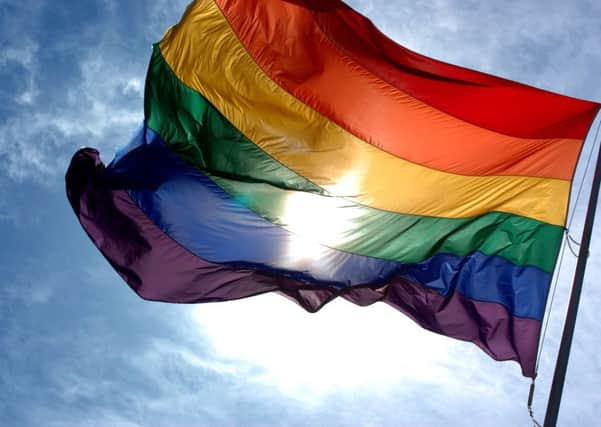Homophobic views still prevalent in sport, research shows


Football fans are the most likely to hear homophobic abuse, with 72 per cent of fans hearing it while watching live sports in the past five years.
The research also reveals that 18- to 24-year-olds are twice as likely to say they would be embarrassed if their favourite player came out as gay (22 per cent), compared to 12 per cent overall. This age group is also twice as likely to agree that anti-LGBT language is harmless if it’s just meant as banter, (22 per cent compared to 13 per cent overall).
Advertisement
Hide AdAdvertisement
Hide AdHowever, despite this, the research highlights some encouraging trends. Across the general population, 9 in 10 (88 per cent) would be either ‘proud’ or ‘neutral’ if their favourite player came out as gay (50 per cent proud, 38 per cent neutral).
The research also shows that the majority of people think that offensive language towards LGBT people in sport is a problem (59 per cent), with young people more likely to identify it as a ‘big problem’ (28 per cent compared to 13 per cent overall).
Furthermore, nearly two-thirds (63 per cent) of people say more should be done to make LGBT people feel accepted in sport. Almost two thirds of young people (60 per cent) say that open LGBT players would have a positive impact on the culture of sport, and 63 per cent of young people say they wish more sports players were open about their sexual orientation (compared to 55 per cent of people overall).
Other findings show that 75 per cent of sports fans would be happy to play alongside a bisexual teammate and 70 per cent with a transgender teammate.
Advertisement
Hide AdAdvertisement
Hide AdThe ICM research has been commissioned by Stonewall, the leading lesbian, gay, bi and trans (LGBT) equality charity, as part of its Rainbow Laces campaign.
Ruth Hunt, Stonewall’s Chief Executive, said: ‘While the majority of people see homophobic chants and abuse as a problem, and want to see sport become more welcoming of lesbian gay, bi and trans players and fans, there is a persistent minority who believe this sort of abuse is acceptable.
‘These vocal few may be under the illusion that anti-LGBT language is harmless but it makes lesbian, gay, bi and trans fans and players feel unsafe, unwelcome and unable to be themselves.
‘We need high profile sports clubs and personalities to stand up as allies and help make sport everyone’s game by showing that homophobic abuse has no place in sport.’
Advertisement
Hide AdAdvertisement
Hide AdStonewall has developed a range of measures to tackle the problems raised in the research, including a training programme for sports coaches who work with young people so they can ensure they are making sport inclusive. The charity has also developed a sports toolkit for grassroots and community sport to build awareness and understanding of the issues affecting LGBT people, and how they can help ensure all sports offer an inclusive and welcoming atmosphere.
Schools and clubs have also signed up to join in with a week of action to show that everyone can play a part in making sport everyone’s game. Stonewall’s Rainbow Laces movement aims to show that everyone can participate and enjoy sport, whoever they are and whatever their background.
The Rainbow Laces campaign is supported by TeamPride, a group of global organisations committed to making sport everyone’s game. Stonewall and TeamPride will be rolling out a campaign weekend of activity on November 26 and 27 to promote equality for LGBT people in sport.